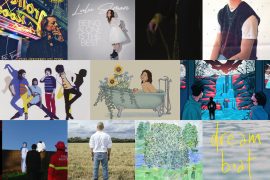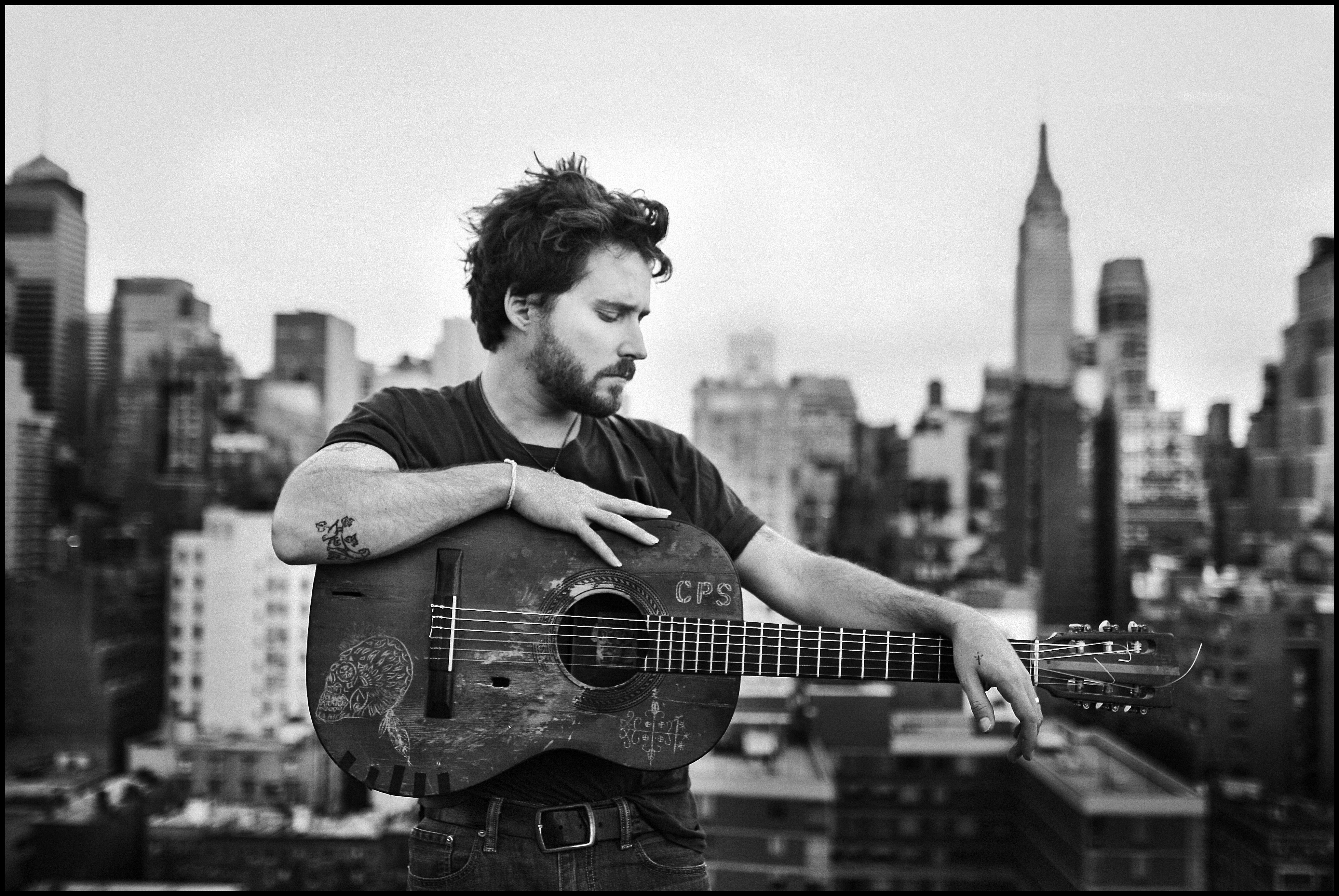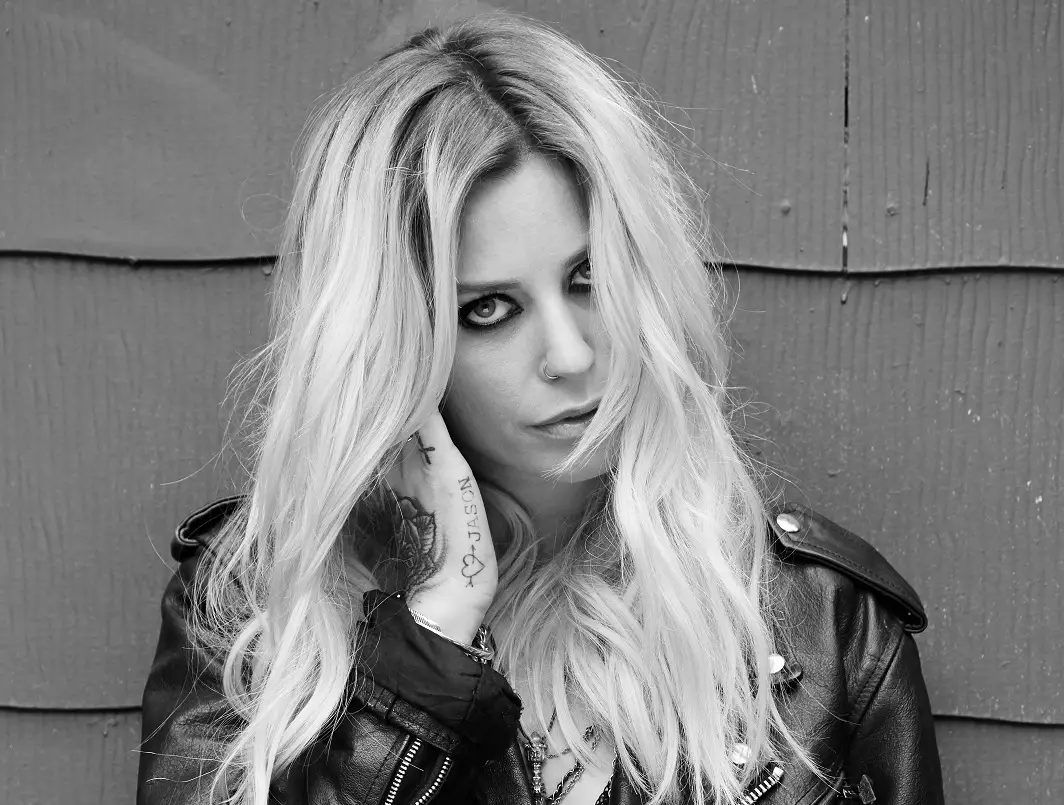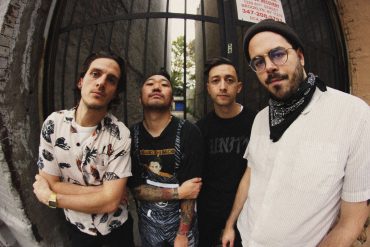From multi-platinum-selling band member to soul-searching soloist, Ashton Irwin candidly discusses balancing artistry and personhood, building power through vulnerability, and leading life open-mindedly in conversation with Atwood Magazine.
‘BLOOD ON THE DRUMS’ – Ashton Irwin
A song is supposed to not be a Top 40 smash. It’s supposed to be a relatable piece of lyricism and poetry to people that experience something like it. That’s really how I approach music.
When you hear the name Ashton Irwin, it’s hard to not think of the world-renowned Australian pop-rock powerhouse 5 Seconds of Summer.
On the musician’s side of things, it’s probably even harder to go from one-fourth of one of the biggest bands in the 2010s to a self-written solo artist, but Irwin makes it look close to second nature.
From the drum stool to center stage, BLOOD ON THE DRUMS shows Ashton Irwin at his most confident, consistent, and dedicated, in both his understanding of music and stardom. Striking a balance between personal and universal themes, channeling influences from ‘70s rockabilly and post-punk to contemporary anthemic pop, the 5 Seconds of Summer drummer was boundless in drafting his second solo record – that was clear upon first listening to the album and in conversation with the artist himself.
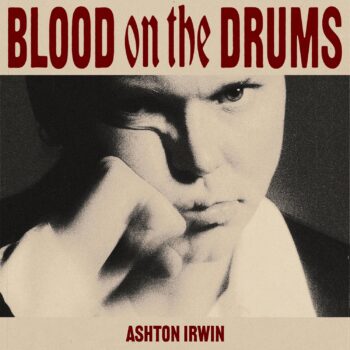
Irwin and I started the call with a brief exchange about the Southern California heat wave, where both of us were battling torrid temperatures and arid atmospheres. “It’s like 42 degrees here right now,” he pauses. “I’m not sure what that is in Fahrenheit. 108 degrees?” He talks about setting water out for animals right before joining the Zoom camera-off, remaining chipper and energetic despite the soul-sapping heat and Friday noon call.
His attitude is a testament to his work; whether it’s a 20-minute press call or a 15-hour studio session, Irwin remains present and engaged in all avenues of his craft, baring his soul and relishing in every last bit of the process. Where most artists would burn out, slow down, and plateau, he is spry, ardent, and eager as ever for more.
“At the moment, I feel even more inspired,” Irwin remarks. “I don’t feel tired. I don’t feel fatigued writing or creating, even though it was such a massive workload to make an album… I feel more creative than I ever have, and I’m really glad I did it.”
What’s the secret to balancing peace and productivity? For Irwin, it’s easy when you do what you love, and love what you do. Core philosophies and unyielding values inform his lifestyle and creative process, naturally manifesting in the art he makes and the stories he tells. That extends further than musicianship – Irwin speaks eloquently, candidly, and poignantly about the greater purpose underpinning his work.
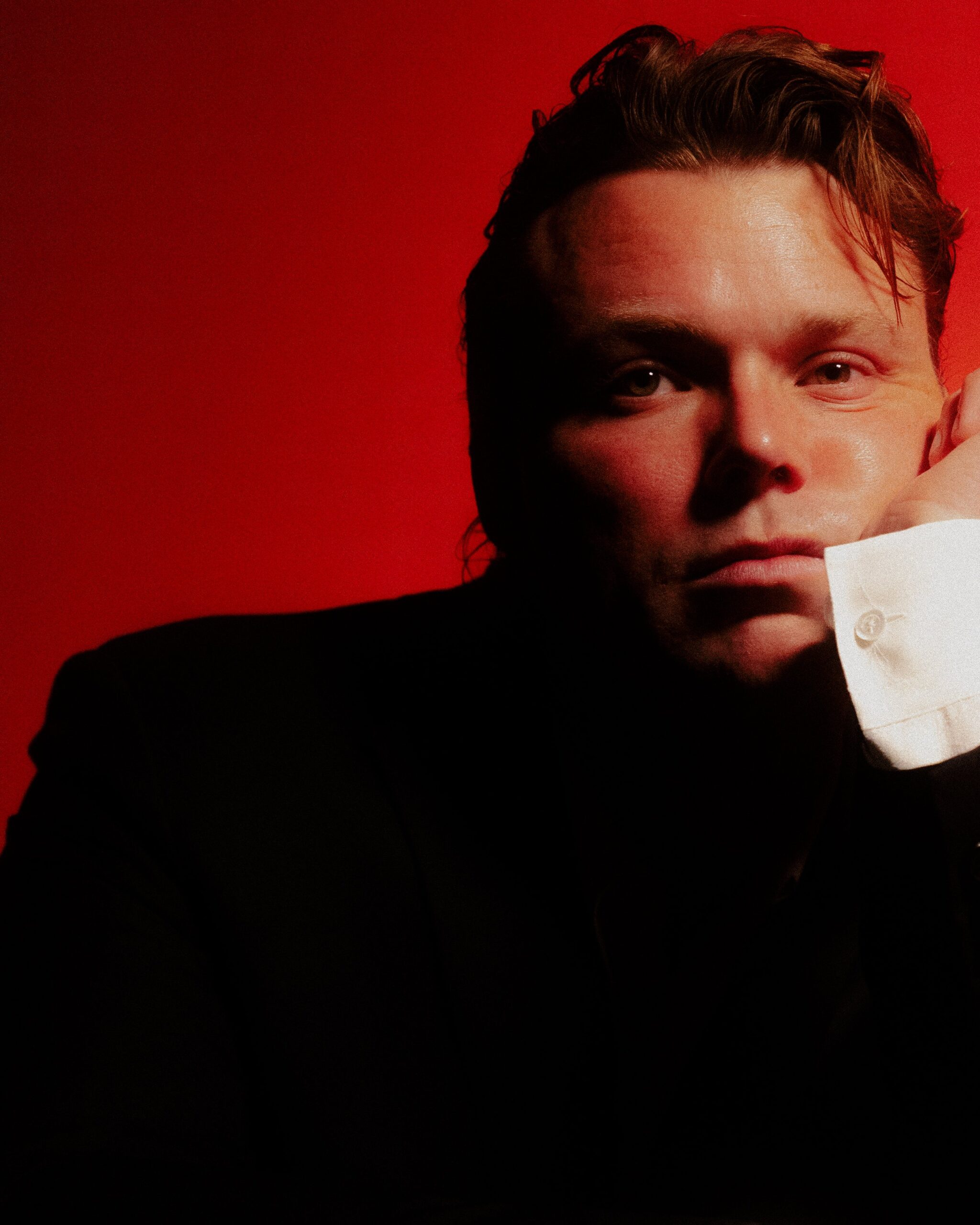
“A song is supposed to not be a Top 40 smash,” he reveals. “It’s supposed to be a relatable piece of lyricism and poetry to people that experience something like it. That’s really how I approach music. I think it should be a cure for terrible thoughts. It should create escapism of some kind.”
“I also am a big believer in that it takes a lot of strength to be kind and accepting of others and staying open-minded. It needs to be practiced in almost a spiritual sense,” he shares some pearls of wisdom. “I think there’s a real duality that happens between people who don’t care and people who want things to heal and become more harmonious.”
Having recently entered his 30s, Irwin reflects on his career, the woes and throes of his 20s, and the little things that keep the Earth spinning on its axis.
BLOOD ON THE DRUMS draws on his experiences, interactions, and feelings more externally than his debut solo record, Superbloom. A firm believer in keeping consistent and trusting the process, the singer-songwriter-drummer holds authenticity above all else.
“I talk a lot about perseverance, and I talk a lot about becoming hardened,” he muses. “At the same time, I talk about allowing yourself to go forward and becoming the best of whatever you actually are inside. I talk a lot about that on the album, and some of the main concepts are thinking about the past. A lot of thinking about who I’ve been, who I’ve been with, the places I’ve seen, and my particular disposition – philosophies on how life works. It’s cool to explore it in contemporary music.”
We wish each other luck with faring the weather, as the call ends with Irwin teasing the heaps of music in store, both on his end and the band’s. In the thick of Southern California’s blistering heat wave, Ashton Irwin joins Atwood Magazine to talk all things life, 5SOS, and BLOOD ON THE DRUMS – we’re on our toes for the fire that’s yet to come.
I think the art of being a contemporary musician and artist is letting life guide you and letting the times assist you in navigating what to make – when, how, why, and where. I pay a lot of attention to what’s naturally occurring, and I try to bring out the best in that.”
— —
:: stream/purchase BLOOD ON THE DRUMS here ::
:: connect with Ashton Irwin here ::
“BLOOD ON THE DRUMS” – Ashton Irwin
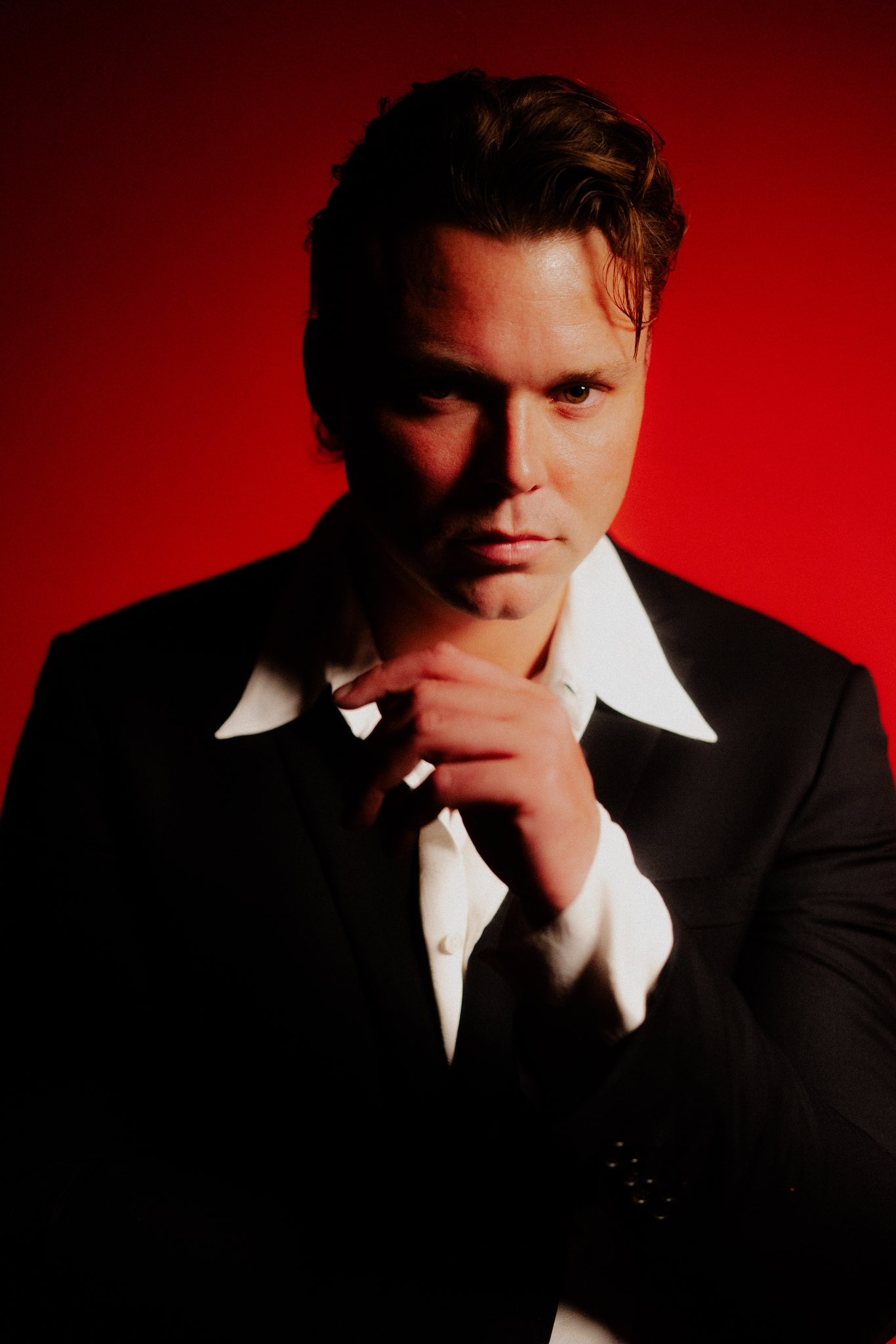
A CONVERSATION WITH ASHTON IRWIN
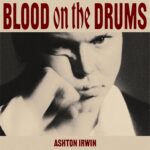
ATWOOD MAGAZINE: CONGRATULATIONS ON THE NEW RECORD! I’M EXCITED TO SPEAK; THIS HAS BEEN A LONG TIME COMING. I WANTED TO START OFF BY LETTING YOU TALK ABOUT YOUR SHOW AT THE BELASCO, WHERE YOU GOT TO DEBUT BLOOD ON THE DRUMS IN FULL! TELL US ALL ABOUT HOW THAT WAS.
Ashton Irwin: I’ve played a lot of shows in my life. I’ve always been singing in front of people, but to commemorate my solo work in a show by performing to new and old fans was really, really cool. I loved the experience. It rejuvenated me in my soul. I love putting live rock shows together. That’s one of the best parts of my work, so it was amazing.
IT WAS QUITE DIFFERENT. YOU’VE OBVIOUSLY DABBLED IN SO MANY STYLES OF MUSIC THROUGHOUT YOUR CAREER, WHETHER THAT’S WITH 5SOS OR IN YOUR SOLO WORK. DO YOU FEEL LIKE MAKING MUSIC AND PERFORMING IN ALL THESE DIFFERENT MODES HAS TAUGHT YOU DIFFERENT THINGS ABOUT YOURSELF?
Ashton Irwin: Yeah, totally! Not always the things you would expect externally. All of it is super enlightening. That’s why it’s worthwhile as a life path – creating and performing music, becoming an entertainer, becoming a better writer, a more aware poet. It’s especially true when writing lyrics. Performing live is a lot about releasing yourself and your self-awareness. It’s just being one with what you make, and learning to grow confidence in that is a massive and long path for an artist.
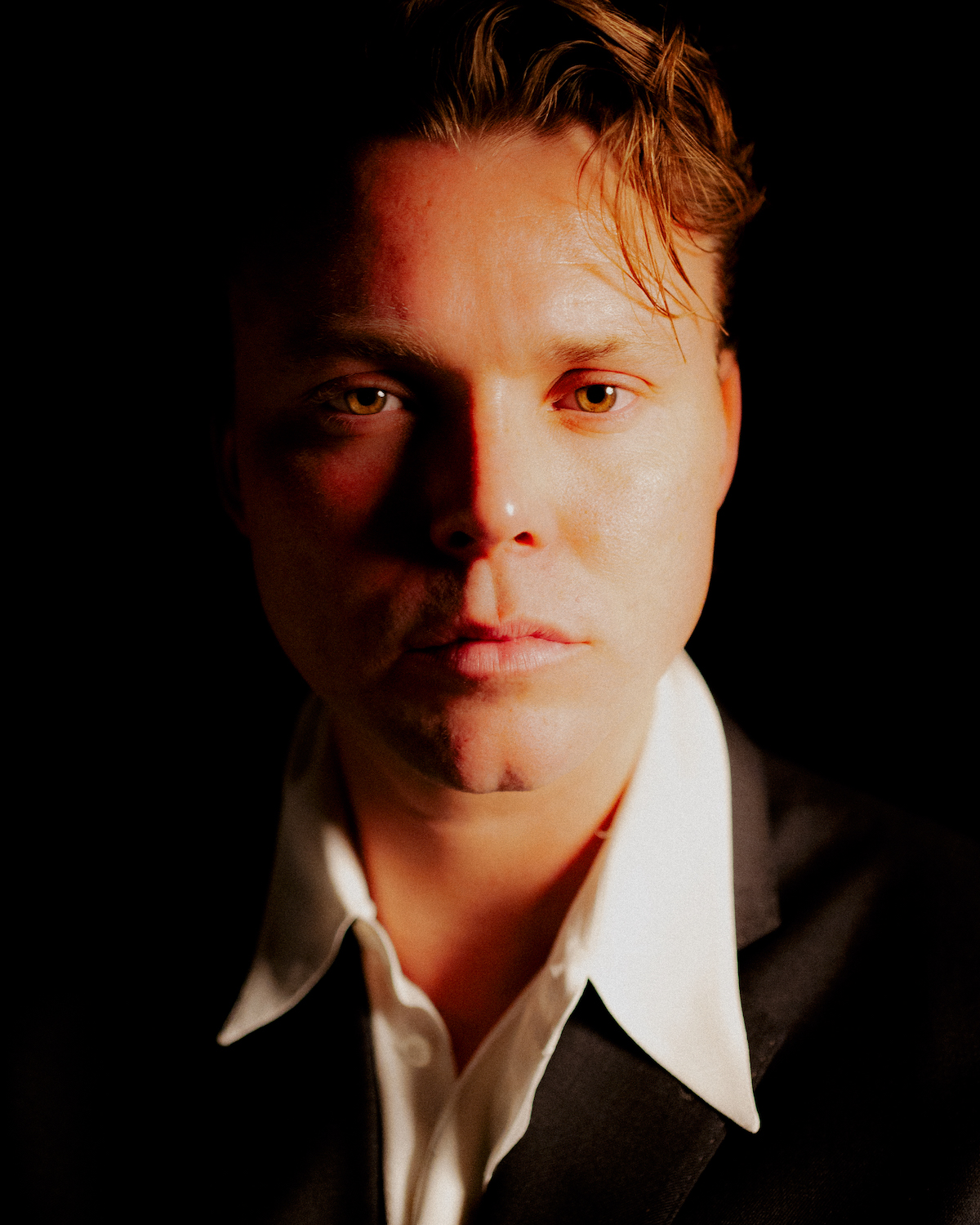
WHAT DO YOU THINK YOU’VE CARRIED THE MOST FROM YOUR PAST PROJECTS AND EXPERIENCES ONTO BLOOD ON THE DRUMS?
Ashton Irwin: I think a lot of it was knowing how and where I like to create albums. I made this album with John Feldman, who produced the first and second 5 Seconds of Summer record. Some of my favourite things that I learned during those processes were having a close relationship with a producer as a drummer and also trusting somebody almost on a telepathic level for what kind of direction we’re going in, whether that’s A&R, vibes, or sonic direction. I learned to work with people I trust.
DID THE ORIGINAL DIRECTION OR CONCEPT YOU HAD FOR THE ALBUM CHANGE AT ALL?
Ashton Irwin: I embrace that whatever I’m making at the time is the right thing to do, especially in my solo work. I think the art of being a contemporary musician and artist is letting life guide you and letting the times assist you in navigating what to make – when, how, why, and where. I pay a lot of attention to what’s naturally occurring, and I try to bring out the best in that. The direction never really changed, because there wasn’t a definitive direction. There was just one feeling after the other.
ON THAT, I FOUND THAT THE TRACKLIST FLOWS IN A REALLY NATURAL, CINEMATIC, AND STORYLIKE WAY. WAS THIS INTENTIONAL? HOW DO YOU GO ABOUT ORDERING SONGS, AS WELL AS CHOOSING WHICH ONES TO SPLIT INTO “THE THORNS” OR “THE ROSES”?
Ashton Irwin: It’s interesting because it almost happened like a trace of thought. Each song was coming together one by one, and the tracklisting didn’t end up too far from the succession of which the songs were created, which was cool. It’s interesting to see how your thoughts materialize and externalize in order.
I talk a lot about perseverance, and I talk a lot about becoming hardened. At the same time, I talk about allowing yourself to go forward and becoming the best of whatever you actually are inside. I talk a lot about that on the album, and some of the main concepts are thinking about the past. A lot of thinking about who I’ve been, who I’ve been with, the places I’ve seen, and my particular disposition – philosophies on how life works. It’s cool to explore it in contemporary music.

WERE ALL OF THE SONGS FINISHED IN THE ORDER THEY APPEAR ON THE TRACKLIST?
Ashton Irwin: Almost! All the songs I did with John Feldman are almost in the same succession, but “The Canyon” and “Breakup” were written first. Those songs were a totally different process that I wasn’t willing to do a whole album for. They were a more classic process, in terms of how I captured them. I think you can hear that if you’re a music fan; they’re really sonically massive departures from the rest of the record.
YES, FOR SURE! GETTING INTO SPECIFIC SONGS, I SAW YOU POST ABOUT “I SEE THE ANGELS” ON INSTAGRAM TODAY, AND YOU TALKED ABOUT HOW IT’S ABOUT PEOPLE WHO SEE PAST JUDGMENT AND CRUELTY – THE ANGELS IN OUR WORLD TODAY. ELABORATE ON THAT, SINCE IT SEEMS TO BE A VERY PRESENT AND RELEVANT THOUGHT.
Ashton Irwin: They were the first people I thought about when I was writing this song. The verse lyrics are about me knowing that the hardest times in my life created my strength and willpower. I also am a big believer in that it takes a lot of strength to be kind and accepting of others and staying open-minded. It needs to be practiced in almost a spiritual sense. I talk about that in “I See the Angels,” because I think about people that are selfless in the way that they accept and help others. Obviously, in recent years, we’ve been through a lot of terrible things on Earth. I think there’s a real duality that happens between people who don’t care and people who want things to heal and become more harmonious. I pay a lot of attention to that, and it’s kind of me just expressing that. I don’t see any divine intervention happening. I’m not necessarily religious or anything like that, but metaphorically, I do see people that are angels out here trying to heal things and help others.
WHAT I LIKED A LOT ABOUT THIS ALBUM IS THAT IT FELT VERY UNIVERSALLY RELATABLE IN THAT SENSE, WHICH WAS VERY DIFFERENT FROM SUPERBLOOM, SINCE THAT WAS VERY CONFESSIONAL AND SPECIFIC TO YOUR LIFE AND EXPERIENCES. TELL ME WHAT IT WAS LIKE CHANNELING BROADER, MORE AMBIGUOUS THEMES THAN MORE PERSONAL ONES.
Ashton Irwin: They come from two different parts of my mind. It’s actually more difficult to create something simple and understandable in comparison to leaning into a flow state and abstraction. My first album, from my point of view, was more abstract, embracing flow state, and embracing any words that would come from my inner feelings about my life and trauma. For this album, maybe my lyricism matured in a different way. I was very critical of my first album, so I don’t ever want to make the same thing twice. I got a lot of feedback from the people that listen to my music for my first album, and it was that the topics were kind of confusing. They’re not fully embraceable. Because of the way the music world is right now, I think I’d be missing out on communicating with my audience effectively if I leaned more into abstraction. It was kind of a real choice.
YOU’VE ALSO SAID THAT YOUR CONFIDENCE IN TERMS OF EXTERNALIZING YOUR PERSONAL LIFE DWINDLES AS YOU GET OLDER AND THAT YOU FIND OVERSHARING TO BE DANGEROUS IN THIS DAY AND AGE. DID YOU EVER FEEL OBLIGATED TO OVERSHARE SO THAT YOU CREATE FROM AN AUTHENTIC PLACE?
Ashton Irwin: That’s the bravery that comes with being an artist. It’s being fearless about unveiling parts of yourself that can be scrutinized, having people point their fingers, and kind of mutilating. I think it’s really dangerous. That’s why I did it when I was younger, because I wasn’t as perceptive and aware as I am now of topics like my journey with body dysmorphia. That was really terrifying, and it gets more terrifying as I get older, but I’m still glad I did it. A song is supposed to not be a Top 40 smash; it’s supposed to be a relatable piece of lyricism and poetry to people that experience something like it. That’s really how I approach music. I think it should be a cure for terrible thoughts. It should create escapism of some kind.
I FEEL LIKE “THE CANYON” IS A POINT ON THE ALBUM WHERE YOU’RE QUITE VULNERABLE, SINCE IT TALKS ABOUT THINGS LIKE BREAKING GENERATIONAL CYCLES AND SUICIDE. YOU ALSO SAID IT WAS A CORNERSTONE FOR THE ALBUM AND WOULD BE THE SONG YOU’D PLAY FOREVER IF YOU COULD. IS THAT WHY?
Ashton Irwin: “The Canyon” is a special song, because it is a fearless unraveling of my relationship with my father, my relationship with abandonment, and my relationship with understanding depression on a philosophical and spiritual level. I’m attempting to communicate to others how it feels to understand your eclipsing inner world and how it actually makes you wiser and more powerful as a human being. I wanted to communicate that in that song, and that’s why I say I would perform it for a long time, because it feels like it just means something, and it needs to mean something for it to have life.
WHILE WE’RE TALKING ABOUT SONGS, YOU MENTIONED “BREAKUP” EARLIER, WHICH IS MY FAVE TRACK OFF THE RECORD. I LOVE HOW BIG AND BOLD IT IS, WITH THE ENERGETIC RIFFS AND BACKGROUND VOCALS/HOWLING. TELL ME MORE ABOUT THAT SONG.
Ashton Irwin: I love Led Zeppelin, T. Rex, Queen, and MUSE. I love all these bands, and I also love rockabilly music. I love the ’70s rock thing, the feelings, and the rhythms of that song. In “Breakup,” I just wanted to explore my most foolish and youthful thoughts. I’m usually pretty terrified of a concept like that. I would never click on songs that have the title “Breakup,” but often they’re the concepts that you should go for as an artist. If you’re scared of it, but it ends up being really good, it’s kind of teaching a lesson to open your mind up again. I was really happy with how that song turned out, and I was exploring new types of vocals and a new sound that I could really lean into live. My songs live have to be really where it’s at, because that’s where I get my adrenaline from, and that’s really the experience I want to have with music – it’s out there in the world, in front of people. I love that song.
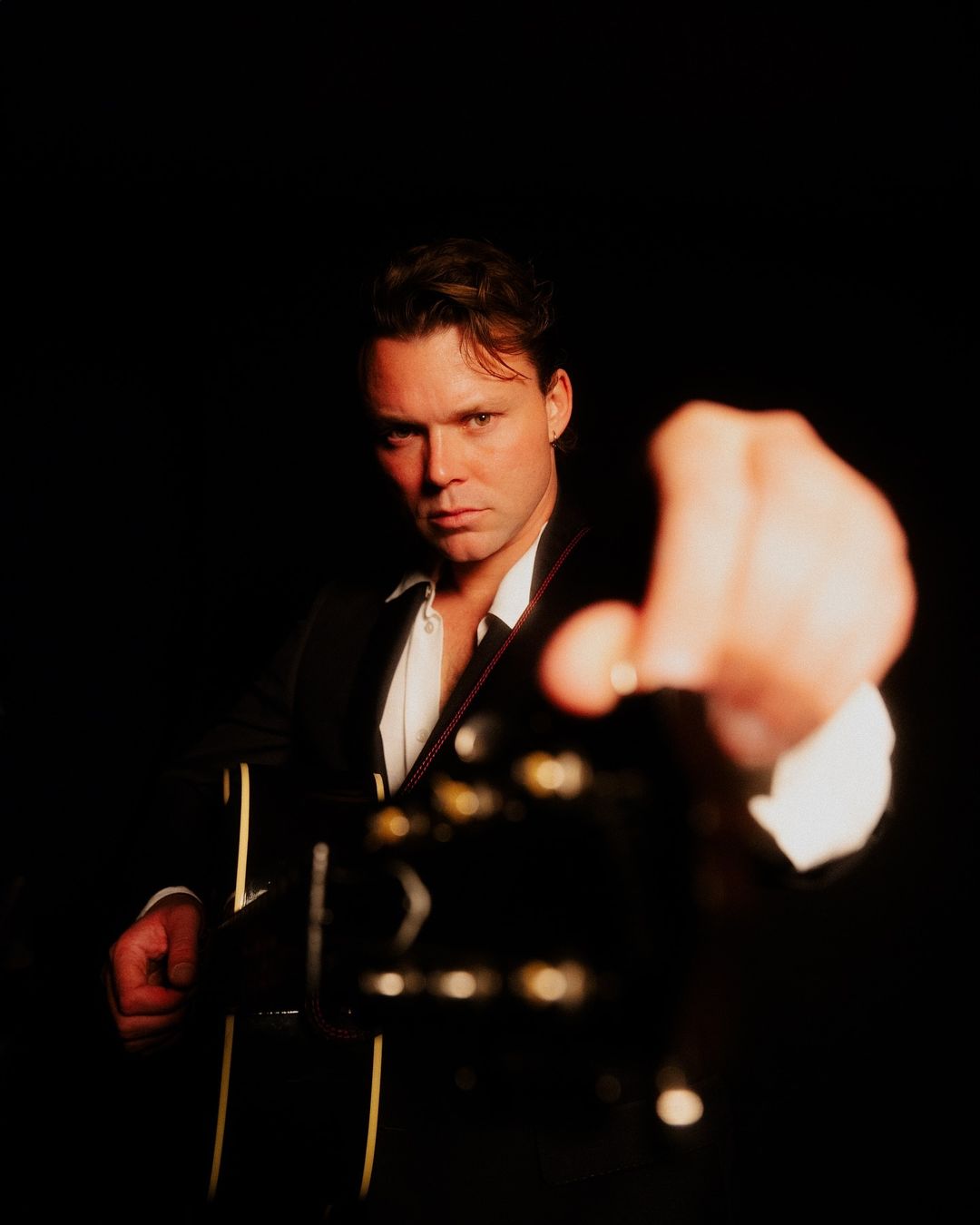
I SAW VIDEOS OF THE SHOW ONLINE, AND YOUR ENERGY WAS CRAZY! I CAN ONLY IMAGINE HOW FUN IT WOULD BE TO PLAY LIVE. WE TALKED ABOUT YOU HAVING A STREAMLINED METHOD THAT YOU TEND TO ADHERE TO, BUT WAS THERE ANYTHING UNEXPECTED THAT CAME ABOUT IN THE ALBUM CREATION PROCESS?
Ashton Irwin: Nothing super unexpected! I think I really went into my zone. The thing I’ve really been working on, to slightly change what you’re asking me, is making music as often as I can, for as long as I can. I hope I just got better at recording and writing and being an artist on my own, apart from being in my band. My dream is to just keep growing that.
The unexpected thing was that I now feel like I could make two albums a year. At the moment, I feel even more inspired. I don’t feel tired. I don’t feel fatigued writing or creating, even though it was such a massive workload to make an album. I’m already making new music with the band! It’s unexpected, because you open the gates to creating, you facilitate it if you can, and I’m lucky that I can. I feel more creative than I ever have, and I’m really glad I did it.
HOW WOULD YOU COMPARE YOUR ARTIST IDENTITY AS A MEMBER OF 5SOS AND AS A SOLOIST?
Ashton Irwin: It’s really difficult because my identity is interweaved with 5SOS, and a lot of people tell me, “I can hear 5SOS in your music.” That’s because I make the band’s music with the band. Obvious stuff, but I think the difference is I share particular ideas and my taste is an individual thing. Certain sounds. I choose the lyric concepts, I choose the vocal registers, I choose the sounds I think are cool. I just get free will with it, rather than getting it approved by three other people. You’re an individual mind, and you really just have to trust your taste as an individual rather than bouncing it off other people. Both are incredibly different processes.
BEFORE WE GO, YOU TALKED ABOUT MAKING NEW MUSIC WITH 5SOS EARLIER, AND THERE WAS THAT INSTAGRAM POST ABOUT WRITING WITH EVERYONE A FEW WEEKS AGO! WHAT CAN WE LOOK FORWARD TO COMING UP?
Ashton Irwin: We’re just making as much music as possible. We usually write like 100 songs before we choose any. Right now, the songs are flowing. Some are good, some are bad, but we’re going to wait and just get a collection of incredible stuff that we’re proud of, and we’re going to get ready to launch that again. Hopefully soon!
— —
:: stream/purchase BLOOD ON THE DRUMS here ::
:: connect with Ashton Irwin here ::
— — — —

Connect to Ashton Irwin on
Facebook, Twitter, TikTok, Instagram
Discover new music on Atwood Magazine
© Ryan Fleming
:: Stream Ashton Irwin ::

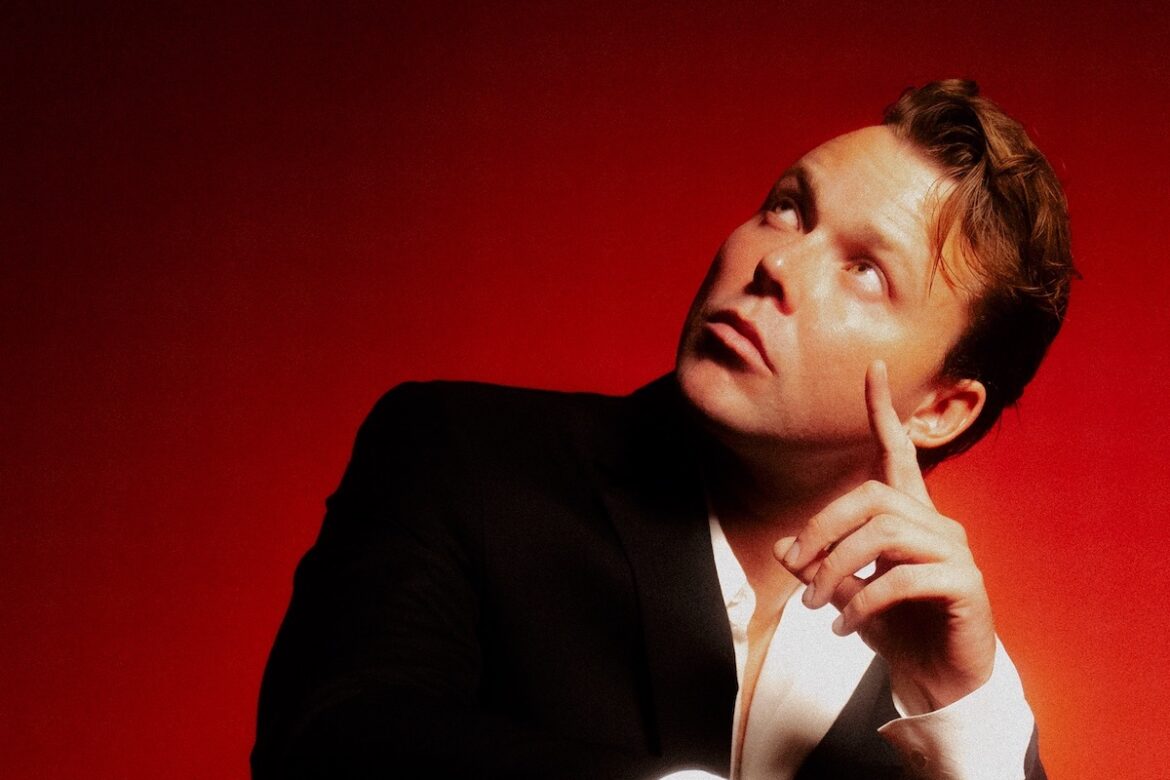
 © Ryan Fleming
© Ryan Fleming